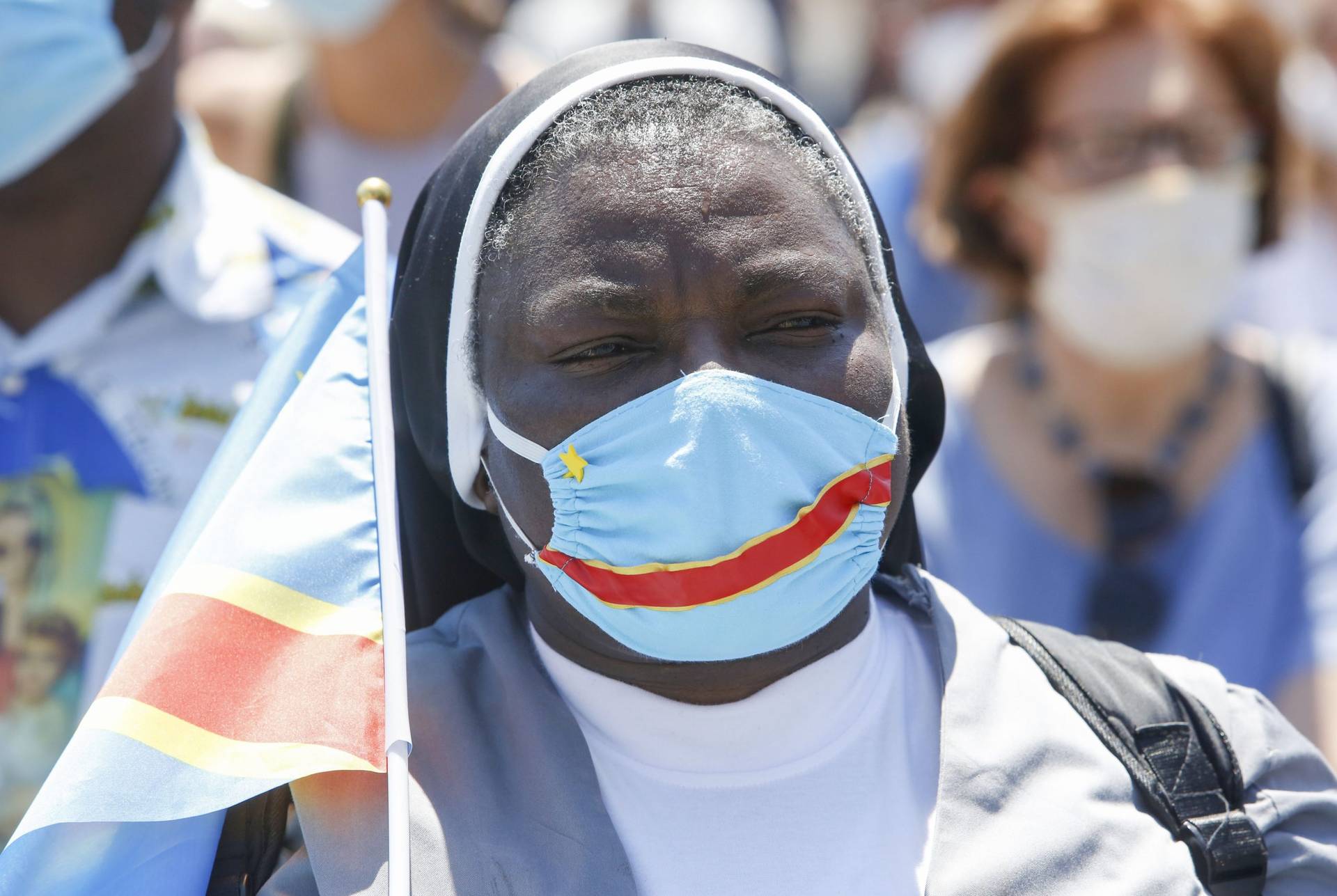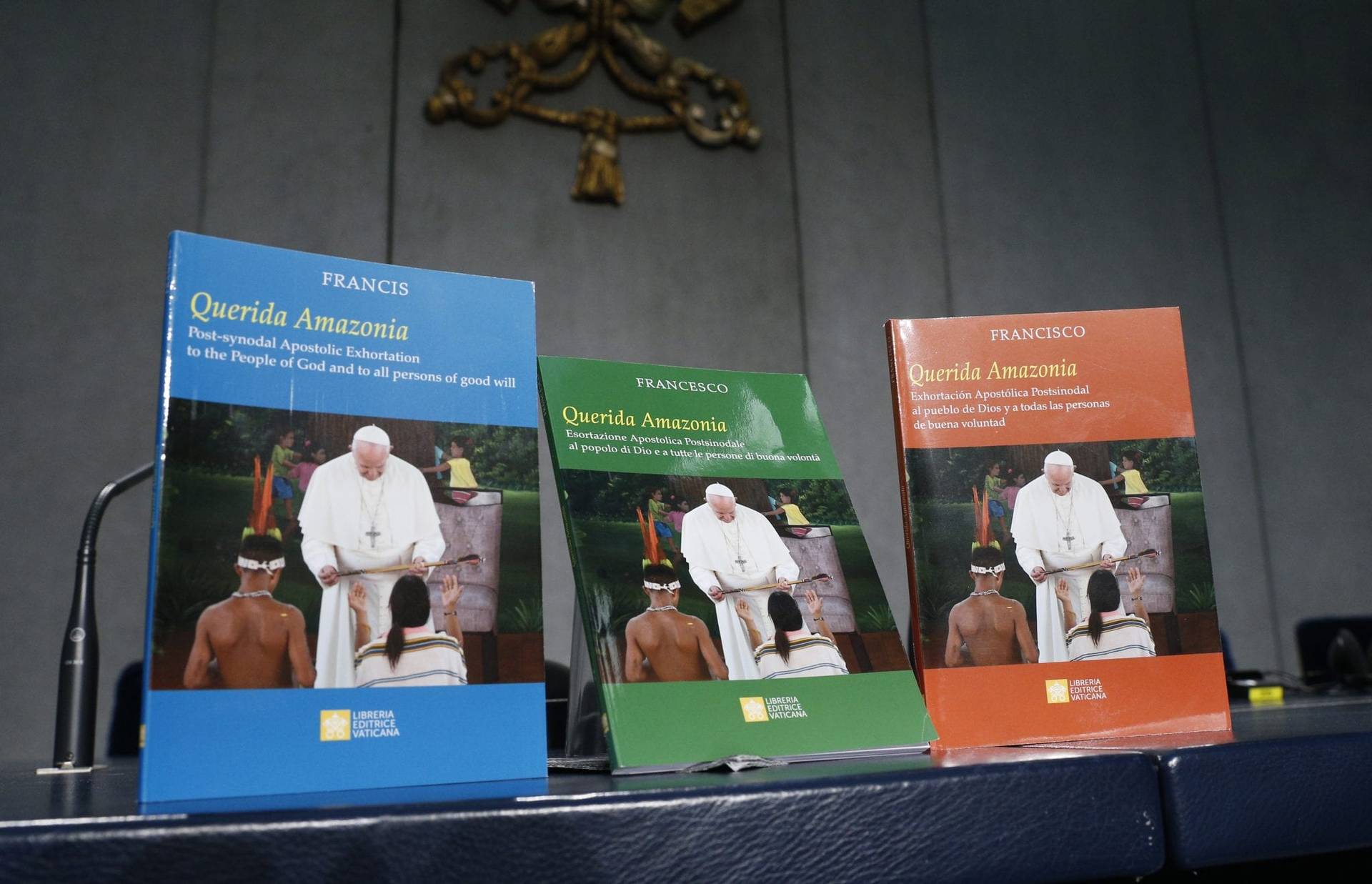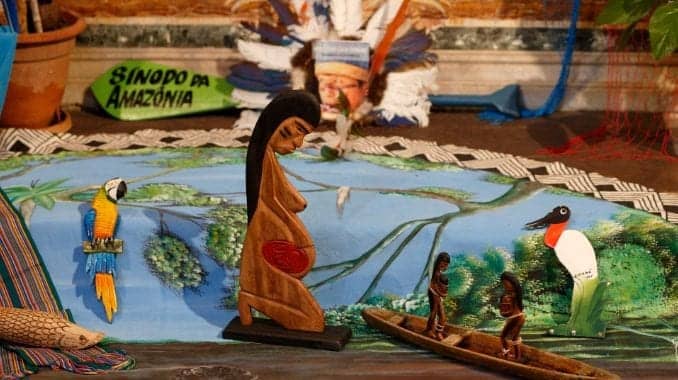LAGO AGRIO, Ecuador – Though it’s possible to talk about the Amazon in terms of statistics, such as how many hectares of rain forest are lost every year to slash-and-burn development, or policy choices, such as how the nine governments that share the Amazon should have responded to a recent spate of devastating fires, none of that captures the emotional register of the place.
For that, you have to talk to the people who actually live here, such as local resident Daniela Andrade.
“It’s as if the world hates us,” Andrade said Monday, trying to explain the bewilderment and anger people often feel over blatant pollution and related health issues generated by the oil and mining industries, coupled with grinding poverty and chronic governmental neglect.
“They want to make us disappear, they see us as a stone on the road blocking their ‘progress’,” she said.
Andrade helps in the communication department of REPAM, an ecclesial network for the Amazon that has played a key role in preparation of an upcoming Oct. 6-27 Synod of Bishops for the Amazon convened by Pope Francis in Rome.
Damage from this summer’s fires, which are believed to have claimed some 906,000 hectares of the Amazon, is visible if one drives just a few miles in any direction from the city of Lago Agrio in Ecuador where Andrade spoke to reporters.
The residue of the fires, she said, is a “reflection of that hatred the world feels for us.” She said it’s also a reflection of the world itself, that is “suffering because we’ve abandoned it.”
Yet, she said, the Amazon is also a “place of hope, of resilience, where we can find the face of a God who speaks of getting up every day, believing that one can move forward and even grow with his help,” she said.
In terms of the Catholic role here, one might suspect that Latin America’s liberation theology would form the beating heart of the Church. Yet, locals say, it was actually St. John Paul II’s ecumenical push which played a key role in the region’s evangelization.
“The values John Paul II presented have been very important for us,” said Macario Castillo, who works in Caritas’s social pastoral house in the Ecuadorian state of Sucumbios.
“Ecumenism in particular allowed us to understand that we are all equal: if there’s poverty, a lack of health services or education, if our water is polluted, we’re all affected,” he said.
Castillo, whose hands are marked by years of working his land, mentioned liberation theology and its Brazilian avatar, theologian Leonardo Boff, almost in passing, preferring to focus on the Polish pontiff and his Argentine successor, Francis.
“Laudato Si’ suits us like a ring on our finger,” Castillo told a group of journalists, including Crux, last Saturday. “With it, Pope Francis seeks to raise awareness of the impact that everyone has on the planet. When the pope supports what we’re fighting for so clearly, he gives us a lot of energy.”
Laudato Si’ is Francis’s 2015 document on the environment, which, as he’s put it, is the “mother” of an upcoming Synod of Bishops on the Pan-Amazon region to be held in Rome Oct. 6-27.
Francis’s encyclical, Castillo said, “commits us to the demanding and tenacious struggle to recover our sovereignty and our environmental rights.”
Lago Agrio is the largest city in the state of Sucumbios, Ecuador’s main oil producing region, in the heart of the Amazon rainforest.
According to Castillo, the government of Ecuador’s President Lenin Moreno is evaluating opening seven new oil fields in the area, regardless of the opinion of the local population, who after 40 years of extractive industry are fed up.
They say the oil industry has brought few advances and plenty of problems to a state that should be the wealthiest in Ecuador, but which instead has few and poorly paved roads. Most homes have no electricity or running water, and the population faces unusually high rates of cancer, with 10 in 100 inhabitants suffering at least one type of the disease considered a death sentence in the jungle.
“Oil companies claim that the new platforms will be sources of work, but in no way are they worth the risk they produce,” Castillo said.
Lago Agrio is some 20 minutes away from Ecuador’s border with Colombia, suffering fallout from its neighbor being one of the world’s main drug producers. It has also felt the impact of Colombia’s five-decade civil war, including guerrillas hiding in the hilly region.
Richard Ullauri coordinates the social ministry of the local branch of Caritas, the Church’s official charitable agency. He told reporters that the Church in Sucumbios has been at the forefront of the ferment, accompanying those affected by the pollution that results from oil extraction.
“We’ve transmitted the Gospel through our accompaniment of those in need, those marred by an economic system that leaves those on the outskirts even further on the margins of society,” Ullauri said.
His office helps coordinate a social market that offers 26 families from neighboring communities the possibility of selling their products directly to buyers at a “fair price,” in an area where those who work tirelessly for three years to harvest cocoa beans can receive as little as $2 for a cup of chocolate.
Inés Quesada leaves her family home at 3:00 a.m. to be at the market to sell her farm’s produce by 6:00 a.m.
“We’re families in need who come together, with the help of the Church’s social ministry office, to bring food to our tables,” Quesada said.
She said her family farm, which produces coffee, cocoa beans and plantains, is becoming less productive each year, something she believes is directly tied to pollution produced by a nearby oil well, the gas flaming furnaces that surround her land, and a toxic herbicide called glyphosate the Colombian government tosses from planes to kill cocaine plantations.
“It’s very hard for us … We cannot say that we live a dignified life, it’s more about survival,” Quesada said, with tears in her eyes.
Scientists have long warned against the rapid destruction of the rain forest in all nine nations where it’s present, including Brazil and Bolivia, where the Amazon saw even greater devastation this year due to intentional fires that spiraled out of control.
Santos Napo is the Chairman of the Committee Against Environmental Pollution of Sucumbios, and also a local farmer. He too has been affected by the pollution produced by the oil companies and the use of glyphosate.
“Always, the most affected people are the poor,” he said.
He arrived in the Amazon 40 years ago, “when this was a jungle,” from a different state within Ecuador. With the help of the Catholic Church, he learned different techniques to increase his production and also what to do when the rights of farm workers are being threatened.
“We have many rights, but it seems that in Ecuador, the law only benefits the rich,” Napo said.
“It fills me with excitement and joy that the pope has asked the whole world, those who are Catholics and those who are not, those who know how to read and those who don’t, to join him to protect the Amazon and those of us who live here,” he said.
“If the Amazon suffers, everyone suffers,” Napo said. “And you cannot evangelize if there’s no one left to minister to.”
Follow Inés San Martín on Twitter: @inesanma
Crux is dedicated to smart, wired and independent reporting on the Vatican and worldwide Catholic Church. That kind of reporting doesn’t come cheap, and we need your support. You can help Crux by giving a small amount monthly, or with a onetime gift. Please remember, Crux is a for-profit organization, so contributions are not tax-deductible.














